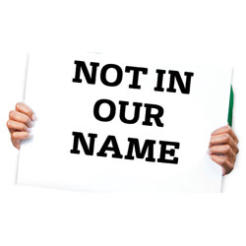Global software firm Salesforce has opened dialogue with the social enterprise sector about its plans to trademark the term 'social enterprise', calling those who object to its move "confused".
In response, Peter Holbrook, chief executive of Social Enterprise UK (SEUK), warns that if Salesforce continues with its application, it will lead to legislation, here and abroad, to make social enterprise a legal entity.
In an email, seen by civilsociety.co.uk, Marc Benioff, CEO of Salesforce, has written a short message to all those who have contacted Salesforce about its application to trademark the term 'social enterprise'.
Benioff starts his message: “Hi, I think someone must be confused.”
He goes on to explain that Salesforce has applied to trademark the term ‘social enterprise’ in connection with enterprise software only, and is not seeking to use the phrase social enterprise generally.
To emphasize his point, Benioff writes ‘social enterprise’ and ‘enterprise software’ in capital letters.
Benioff, who in his message takes credit for inventing the term 'social enterprise,' also insists that Salesforce has no intention of stopping others from using the phrase in unrelated fields such as philanthropy, social responsibility or community involvement: “Our work with non-profits globally over the last decade speaks for itself,” he says. “Whoever wants to discuss this with me can contact me on my personal email [email protected].”
Benioff signs off his email with the Hawaiian word for goodbye ‘Aloha’.
Legal definition for social enterprise
Peter Holbrook, chief executive of SEUK, has written back to Benioff, saying it and fellow campaigners are “confused” about his claim that Salesforce only wants to trademark the term ‘social enterprise’ in connection with enterprise software only:
“Many of us have read your application and it is very wide and varied in the products it describes, but I will take legal advice on this. I would like to get back to you on this once my lawyer has advised,” says Holbrook.
He adds: “You say that you are only using the term social enterprise to describe the software you make. Yet many of your corporate communications materials directly say that by buying into your campaign/method/product, businesses are ‘becoming’ social enterprises.”
Holbrook says that if Salesforce persists in misappropriating the term social enterprise, it will lead to a legal definition of social enterprise in the UK and abroad: “There are politicians in many countries including the UK already pressing for this to happen to protect the good name of ‘social enterprise’. It will certainly happen if you persist with your confusing use of our name and your attempts to legally appropriate it.”
Social Enterprise UK say Salesforce marketing for its Dreamforce 12 conference repeatedly refers to firms such as Virgin and Burberry, as ‘social enterprises.’
It has formally written to Richard Branson of Virgin and Angela Ahrendts of Burberry who are due to speak at Salesforce’s Dreamforce 12 conference in San Francisco later this year, to inform them of their concerns.
Salesforce is seeking to trademark the term ‘social enterprise’ in the US, Jamaica and Europe. In response, Social Enterprise UK has mounted a campaign on Twitter entitled #notinourname.
A number of charities and social enterprises, including SEUK, use Salesforce software. NCVO members receive a 5 per cent discount on Salesforce fundraising software.
The Not In Our Name campaign, being led by Social Enterprise UK on behalf of the movement, aims to:
1. To ensure that Salesforce’s attempts to trademark use of the term ‘social enterprise’ in the EU (including the UK) is not successful.
2. To persuade Salesforce to desist from applying for further trademarks and putting ‘TM’ next to the words social enterprise in its external communications as it has no trademark or trademark pending – this is misleading.
3. To raise awareness of real social enterprise – what it means, what the movement is trying to achieve, and to get more people supporting it.









